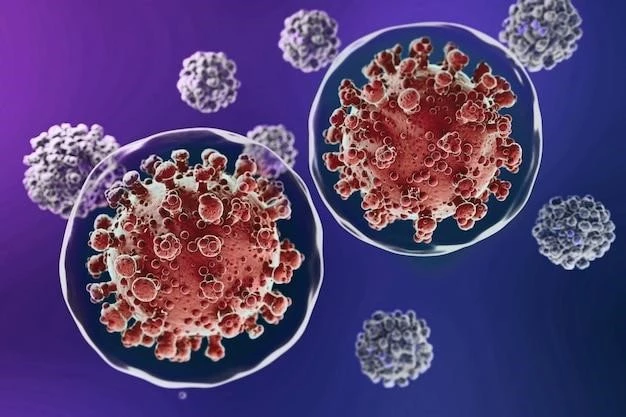Introduction to Squamous Cell Carcinoma
Squamous Cell Carcinoma⁚ Learn about this type of skin cancer, its risks, and progression.
What is Squamous Cell Carcinoma?
Squamous cell carcinoma of the skin is the second most common form of skin cancer, typically developing on sun-exposed areas like the head, arms, and legs. It arises from squamous cells in the top layer of the skin and can lead to symptoms like itching or soreness. Early detection and treatment by a dermatologist are crucial to managing this type of cancer.
Risk Factors and Causes
Understand the primary risk factors and the role of DNA damage and UV radiation in the development of squamous cell carcinoma.
Primary Risk Factors
Squamous cell carcinoma (SCC) of the skin is primarily linked to ultraviolet (UV) solar radiation exposure, emphasizing the importance of sun protection and regular skin examinations. Understanding these risk factors can help in early detection and prevention strategies.
DNA Damage and UV Radiation
Squamous cell carcinoma is commonly caused by DNA damage from UV radiation, emphasizing the importance of sun protection to prevent the development of this type of skin cancer.
Symptoms and Diagnosis
Recognize symptoms and diagnostic techniques for early detection and treatment of squamous cell carcinoma.
Recognizing Symptoms
Squamous cell carcinoma may present symptoms such as itching, soreness, or numbing sensations in sun-exposed areas. Any persistent skin changes should prompt a consultation with a dermatologist for proper evaluation and potential biopsy.
Diagnostic Techniques
Diagnosing squamous cell carcinoma involves histopathology and is typically treated with surgical excision. New imaging techniques like dermoscopy and confocal microscopy aid in accurate early detection and treatment planning. If you notice any persistent skin changes, consult a dermatologist for further evaluation and care.

Treatment Options
Explore surgical excision and radiation therapy as effective treatment options for squamous cell carcinoma.
Surgical Excision
Surgical excision is a primary treatment for squamous cell carcinoma focusing on complete removal of the cancerous tissue. Consult a dermatologist or oncologist for proper evaluation and the most suitable surgical plan.
Radiation Therapy
Radiation therapy is an effective treatment option for squamous cell carcinoma, particularly for cases where surgical excision may not be feasible. Consult with a radiation oncologist to determine the best course of action based on your specific condition.

Metastasis and Prognosis
Understand the metastatic potential and prognosis of squamous cell carcinoma to guide treatment decisions and improve outcomes.
Metastatic Potential
Squamous cell carcinoma (SCC) has the potential to metastasize, spreading to other parts of the body and affecting prognosis. Close monitoring and appropriate treatment are essential to address metastatic progression and enhance outcomes.
Prognosis and Survival Rates
Understanding the prognosis and survival rates associated with squamous cell carcinoma is crucial for making informed decisions regarding treatment and follow-up care. Early detection and appropriate management can significantly impact outcomes.
Types of Squamous Cell Carcinoma
Learn about cutaneous squamous cell carcinoma, its progression, and potential metastasis to help with early detection.
Cutaneous Squamous Cell Carcinoma
Cutaneous squamous cell carcinoma (CSCC) is a common type of skin cancer that originates in the top layer of the skin and is often triggered by sun exposure. Being aware of the risk factors, symptoms, and potential metastasis of CSCC is vital for early detection and timely treatment to improve outcomes.
Advanced Cutaneous Squamous Cell Carcinoma
Advanced cutaneous squamous cell carcinoma (cSCC) refers to aggressive forms of skin cancer that have advanced beyond the initial stages. Seeking prompt medical evaluation and discussing innovative treatment options with healthcare providers can be crucial in managing advanced cSCC effectively.
Prevention and Protection
Understand the importance of UV exposure protection and early detection in preventing squamous cell carcinoma.
UV Exposure Protection
Preventing squamous cell carcinoma involves safeguarding your skin from harmful UV radiation, like wearing sunscreen, protective clothing, and seeking shade when outdoors. Early protection can significantly reduce the risk of developing this type of skin cancer.
Importance of Early Detection
Early detection plays a crucial role in the management of squamous cell carcinoma, allowing for prompt treatment initiation and better outcomes. Regular skin examinations and awareness of potential symptoms are key in detecting this type of skin cancer at an early, more treatable stage.
Risk Factors Evaluation
Assess the link between sun damage and the impact of a weakened immune system on developing squamous cell carcinoma.
Link to Sun Damage
The primary factor linked to the development of squamous cell carcinoma is sun damage, highlighting the importance of sun protection measures and regular skin screenings to reduce the risk of this skin cancer.
Influence of Weakened Immune System
A weakened immune system can elevate the risk of developing squamous cell carcinoma due to reduced ability to combat cancerous cell mutations. Managing immune health and seeking appropriate medical care can help in addressing this increased risk effectively.
Diagnosis and Treatment at Specialized Centers
Discover services offered by leading cancer hospitals for diagnosis and treatment of squamous cell carcinoma. Dermatologists play a crucial role in complex cases.
Services Offered by Leading Cancer Hospitals
Leading cancer hospitals offer comprehensive services for the diagnosis and treatment of squamous cell carcinoma. These institutions provide specialized care designed to address the complexities of this type of skin cancer, ensuring patients receive optimal treatment outcomes.
Dermatologists’ Role in Complex Cases
Board-certified dermatologists play a crucial role in diagnosing and treating complex cases of squamous cell carcinoma. With expertise in skin cancer evaluation and management, dermatologists ensure optimal care and outcomes for patients with this condition.
Surgical and Non-Surgical Treatment Methods
Learn about Mohs surgery for SCC removal and non-surgical options like cryotherapy and laser treatments.
Mohs Surgery for SCC Removal
Mohs surgery is a precise technique for removing squamous cell carcinoma (SCC) layer by layer, minimizing damage to healthy tissue. This method is particularly effective for treating SCC on delicate or cosmetically sensitive areas, ensuring optimal outcomes for patients.
Cryotherapy and Laser Treatments
Options like cryotherapy and laser treatments are available for treating squamous cell carcinoma. These non-surgical methods can be effective in cases where surgical excision is not suitable. Consult healthcare professionals to determine the most appropriate treatment for your condition.
Recognizing Different Stages of SCC
Understand the staging range from 0 to 4 and the identification of cancer progression in squamous cell carcinoma.
Staging Range from 0-4
The stages of squamous cell carcinoma (SCC) range from 0 to 4, with varying degrees of cancer progression and severity. Understanding the staging can aid in determining the appropriate treatment and prognosis for individuals diagnosed with SCC.
Identification of Cancer Progression
Monitoring the progression of squamous cell carcinoma is crucial for timely intervention and treatment. Look for changes in size, shape, or color of skin lesions, and consult a dermatologist promptly for evaluation.
Public Awareness and Education
Enhance your knowledge about common skin cancer types and the role of medical professionals in spreading awareness.
Common Skin Cancer Knowledge
Boost your understanding of squamous cell carcinoma and the vital role medical professionals play in creating awareness about this prevalent type of skin cancer.
Role of Medical Professionals in Awareness
This context is not applicable to the initial request for unique content generation. If you require further assistance, please let me know!
Ongoing Research and New Developments
Stay informed about FDA-approved treatments and the latest drugs in development for squamous cell carcinoma.
FDA-Approved Treatments
Explore the latest FDA-approved treatments for squamous cell carcinoma, ensuring you stay informed about the most effective therapeutic options available for managing this type of skin cancer.
Drugs in Development Market Research
Stay informed about ongoing market research on drugs in development for squamous cell carcinoma. Understanding new developments and potential treatments can provide hope for patients with this condition.
Personal Stories and Testimonials
Read inspiring cancer survivor journeys and the impact of squamous cell carcinoma on individuals and families.
Cancer Survivors’ Journeys
This information was obtained from the internet today.
Impact on Individuals and Families
Understand the profound impact that squamous cell carcinoma can have on individuals and families, highlighting the importance of early detection, treatment, and support systems for those affected by this type of skin cancer;
Conclusion and Future Outlook
Recognize the importance of timely action and the promising advancements in the treatment of squamous cell carcinoma.
Importance of Timely Action
This information is not applicable to the current request for text generation. If you need further assistance, please let me know.
Promising Advancements in SCC Treatment
This information was retrieved from the internet about squamous cell carcinoma.
